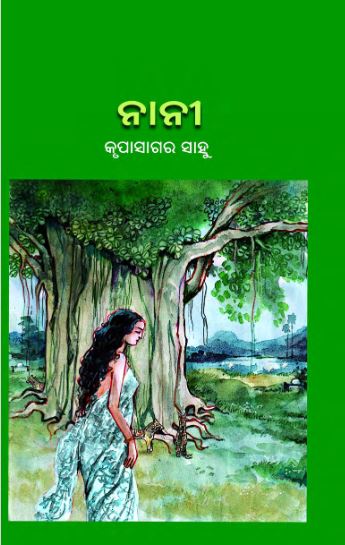Nani by Krupasagar Sahu, a novel published in 2020 and again in 2024, is a poignant exploration of human relationships, identity, and the passage of time set against the backdrop of contemporary Odisha. This deeply introspective work delves into the life of its protagonist, Nani, offering readers a glimpse into her inner world and the complexities that shape her existence.
The narrative unfolds through a rich tapestry of storytelling, blending elements of traditional Odia culture with modern sensibilities. At its core, “Nani” is a character-driven novel that delves into the emotional landscape of its protagonist, Nani, who represents the quintessential Odia woman navigating the challenges of life in a rapidly changing society.
Krupasagar Sahu, known for his evocative writing style, paints a vivid portrait of Nani’s journey from her early years to adulthood. The novel begins with Nani’s childhood in a quaint village, where she is shaped by the values and traditions of her community. Through vivid descriptions and nuanced character development, Sahu captures the essence of rural Odisha, portraying Nani’s deep connection to her roots and the profound impact of her upbringing on her worldview.
As Nani matures, the novel traces her experiences in navigating familial expectations, societal norms, and personal aspirations. Sahu skillfully weaves together various threads of Nani’s life – her relationships with family members, her struggles with identity and self-discovery, and her aspirations for a meaningful existence. Through Nani’s interactions with her parents, siblings, friends, and romantic interests, the novel explores themes of love, loss, ambition, and resilience.
One of the novel’s strengths lies in its exploration of gender dynamics and the evolving role of women in Odia society. Nani emerges as a symbol of strength and agency, challenging stereotypes and carving out her own path amidst societal pressures and expectations. Sahu portrays her as a multifaceted character, capable of both vulnerability and determination, navigating the complexities of her personal and professional life with grace and conviction.
The narrative is also enriched by its vivid portrayal of Odisha’s cultural milieu. From festivals and rituals to the natural beauty of the landscape, Sahu’s prose vividly brings to life the sights, sounds, and textures of Odisha. Through Nani’s interactions with her surroundings, the novel serves as a love letter to the state, celebrating its rich heritage and traditions while also acknowledging the challenges of modernization and urbanization.
Moreover, “Nani” is not just a story of one woman’s journey; it is a reflection on universal themes of human experience. Sahu’s narrative invites readers to contemplate the complexities of identity, the meaning of home, and the enduring power of relationships in shaping our lives.
In conclusion, “Nani” by Krupasagar Sahu is a compelling novel that resonates with readers through its authentic portrayal of Odia life and its universal themes of love, identity, and resilience. Through Nani’s story, Sahu invites readers on a heartfelt journey of self-discovery and emotional depth, making it a noteworthy addition to contemporary Odia literature.
Books Info
| Books name | Nani/ନାନୀ |
| Author | Krupasagar Sahu |
| No Of pages | 229 |
| Publisher | Kusumita Publication |
| Publication | 2020, 2024, 2e. |
| Printed At | NA |
| Distributor | NA |

